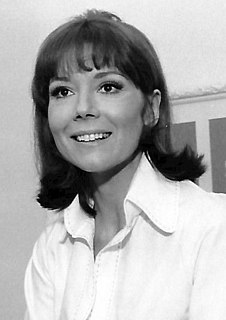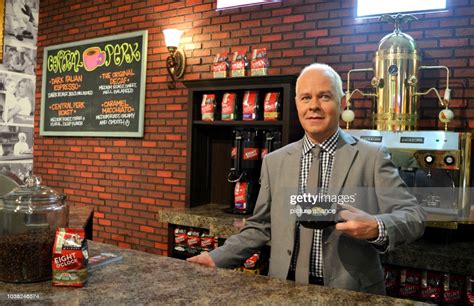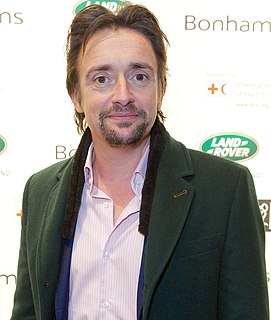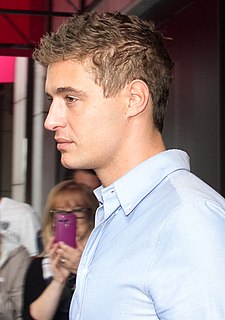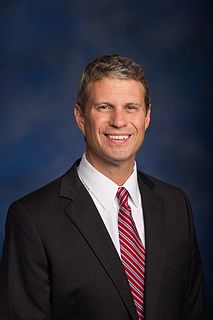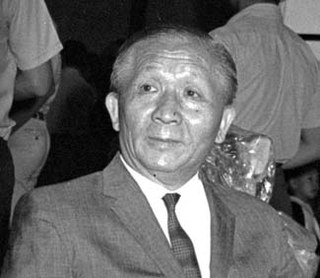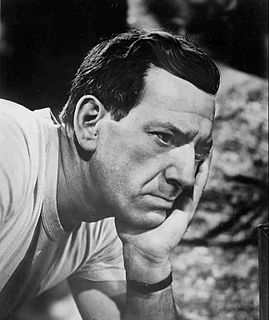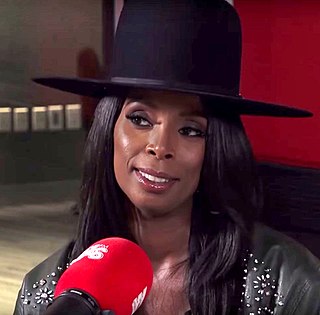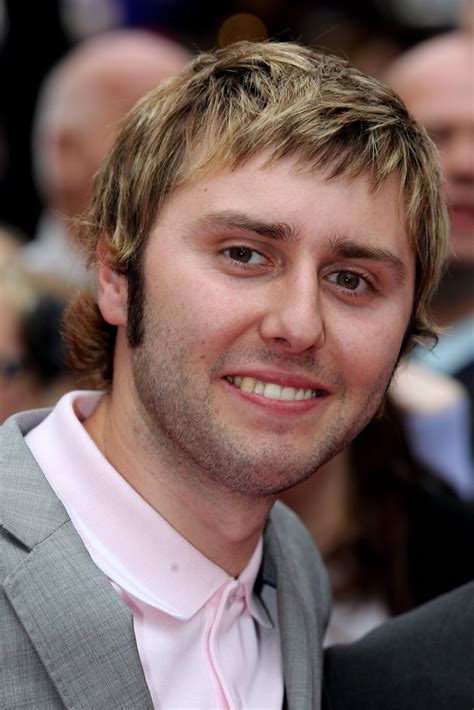A Quote by Diana Rigg
There was a guy called Carlos Thompson, who was I think Argentinian, and he was doing a series called 'Sentimental Agent'. That was the very first thing that I did. It was supposed to be taking place in some exotic location, but in actual fact, it was Chertsey with a few shivering potted palms.
Related Quotes
When I was about 16, I did a Neil LaBute play called 'A Gaggle of Saints' from a collection of plays called 'Bash' - very violent story about a young Mormon who goes to Central Park with his friend and beats up a gay guy. But it was the first thing I had ever done, and I thought, "God, this is fun! This is far more fun than anything else I've been doing at school. I want to stick with it."
The Son is called the Father; so the Son must be the Father. We must realize this fact. There are some who say that He is called the Father, but He is not really the Father. But how could He be called the Father and yet not be the Father?... In the place where no man can approach Him (I Tim. 6:16), God is the Father. When He comes forth to manifest Himself, He is the Son. So, a Son is given, yet His name is called 'The everlasting Father.' This very Son who has been given to us is the very Father.
I attributed their behavior to the fact that they didn't have a TV, but television didn't teach you everything. Asking for candy on Halloween was called trick-or-treating, but asking for candy on November first was called begging, and it made people uncomfortable. This was one of the things you were supposed to learn simply by being alive, and it angered me that the Tomkeys did not understand it.
I've been doing Nixon pretty much my whole professional life. I was in this comedy group called the Credibility Gap in Los Angeles when he was president. I was doing Nixon on the radio, and when we did live shows I physicalized him - if that's a word - for the first time. And then I did a Nixon sketch on a very short-lived NBC show called Sunday Best.
Fred Silverman, the head of ABC, he offered me a lot of comedy series but I told him I'd already been the best comedy series around, "The Odd Couple," and so when he saw that I did Quincy he called my agent and said, Jack turns me down? All my good series and he ends up playing an undertaker." And this was the HEAD of ABC series.
It's very different doing a food show in America and doing one in Britain. I did a 20-part series for the BBC series called 'Eating With the Enemy.' The budget for all 20 episodes was probably the budget for a single episode of 'Top Chef.' It's the difference between making a home movie in your backyard and going to Hollywood.
I had wanted to place the Eye-in-the-Sea at an oasis on the bottom of the ocean, in some site rich with life that was likely to be patrolled by large predators. The first time I got to test the camera at such a place was in 2004, in the north end of the Gulf of Mexico, at an amazing location called the brine pool.
Has Donald Trump ever called himself a populist? I don't think Donald Trump's ever called himself a populist. I think other people have called him a populist, and other people have called Steve Bannon a populist. But I don't think Trump's ever called himself that and he may not know what one is, within the political realm or definition. He's not a political person, and that I think is leading to many people having just a devil of a time translating the guy, analyzing the guy, predicting the guy, projecting the guy.
It wasn't exactly a cattle call. I had an agent, and they were seeing people for the parts, so my agent said, "Here's the script, see if there's anything that speaks to you." And I did, and I called my agent and said, "I think this character Data is kind of interesting," and she said, "Well, okay, I'll get you the appointment with Junie Lowry." I had to read with the casting agent first, 'cause nobody really knew me then. Then after that, I had, I think, six different auditions for the role. And finally it was me [on Star Trek].
